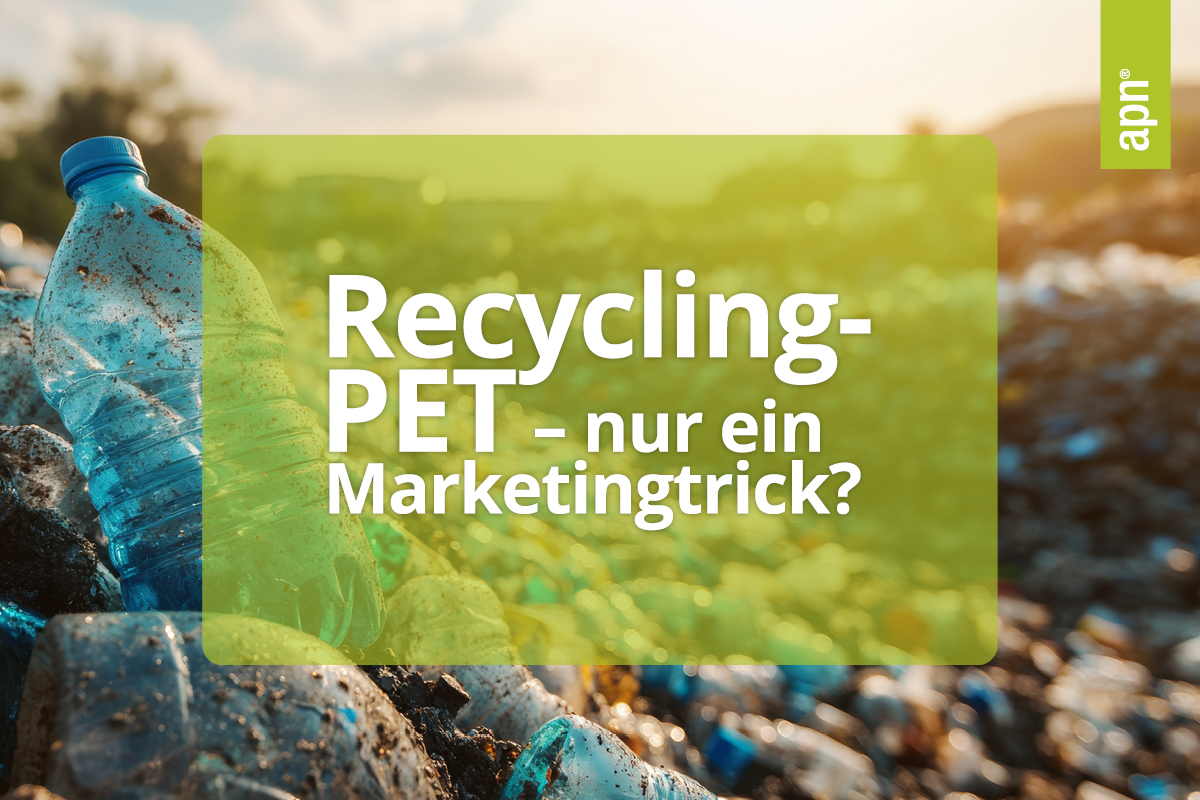Recycled PET – sustainable solution or marketing ploy?
“Made from 100% recycled PET” – this phrase can be found on countless products. Packaging, clothing, carpets and even acoustic elements advertise with it. It sounds like a simple contribution to sustainability – but is it?
Bottle-to-fiber: From a cycle to a dead end
What many people don’t know: Most recycled PET products come from a so-called bottle-to-fiber process. PET bottles are melted down and converted into polyester fibers – for example for textiles or acoustic materials.
The problem is that these fibers can hardly be recycled. After being used, they usually end up in waste incineration. The process therefore does not produce genuine recycling, but a kind of “downcycling” with a short useful life. There can be no question of a functioning cycle.
Recycling is not automatically sustainable
The term recycled PET is often used as a green promise – without questioning the actual environmental impact. This often results in so-called greenwashing: the impression of a sustainable product, although it was only a one-off conversion from bottle to fiber.
However, sustainability means more than just a good image. A genuine circular economy begins with the selection of the right materials, modular product design and recycling after use.
How apn® acoustic solutions does it differently
At apn® acoustic solutions, we see sustainability not as a label, but as a responsibility. That’s why we focus on materials that remain in the cycle – and on products that can be used several times. Our solutions at a glance:
- 70% genuine recycled material in our baseboards – not just bottle fibers, but recyclable raw materials.
- Modular, removable acoustic elements – made for a second, third or fourth life.
- Taking back, cleaning and reconditioning used products – for genuine reuse instead of disposal.
- No overproduction – we manufacture according to demand, not for stock.
Conclusion: Only what returns is sustainable
Recycled PET can make a meaningful contribution – but only if it is part of a closed material cycle. A product that ends up as waste after a single use remains waste – regardless of which recycling process it comes from. For us, sustainability is not a trend, but an attitude. One that starts with responsibility – and continues with real solutions.
apn® acoustic solutions – design that stays. Products that don’t disappear.
Would you like to find out more about sustainable acoustic solutions? We will be happy to advise you.
